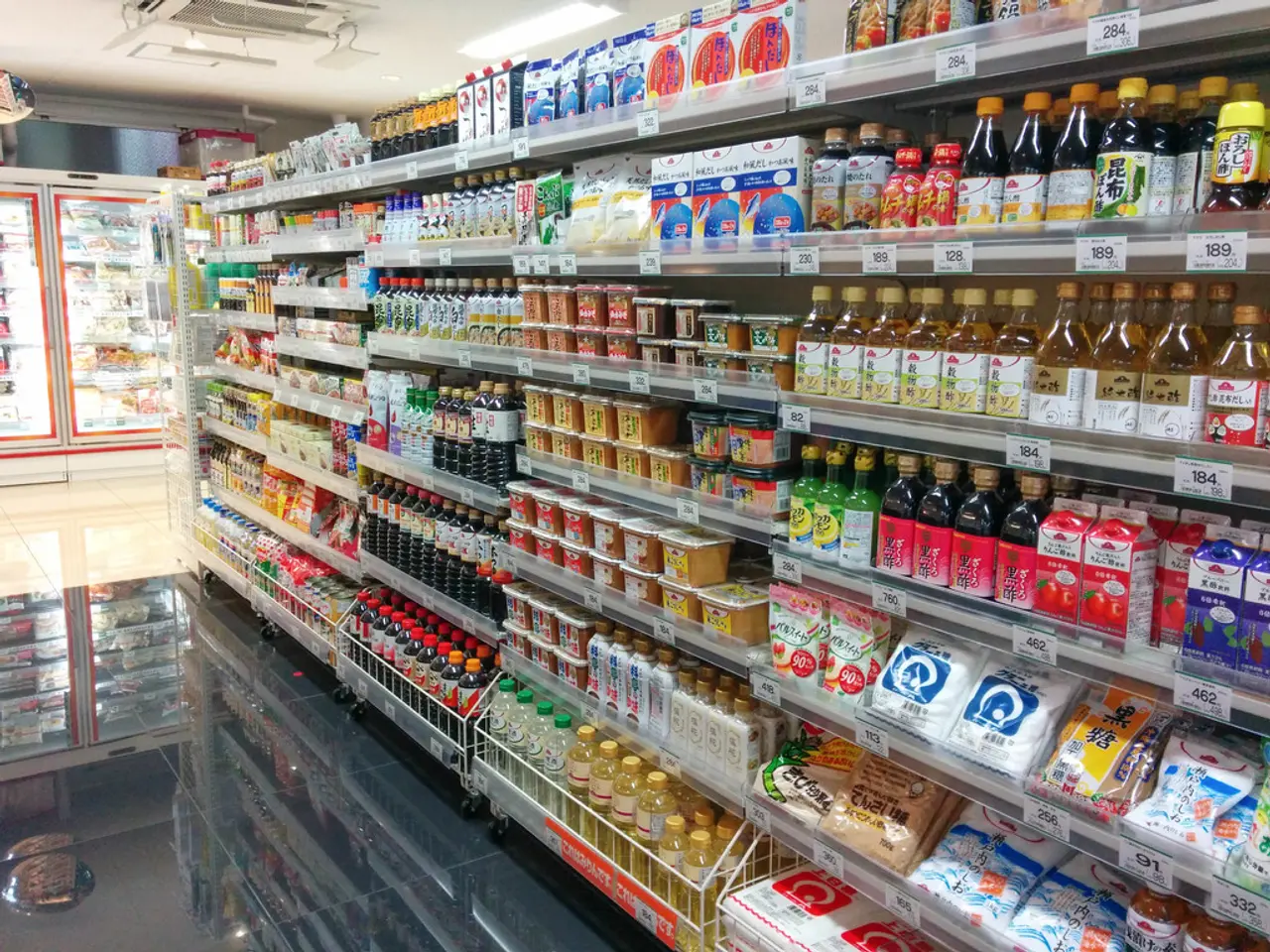U.S.A.'s Action Met by China: They Refuse to Submit Kneelingly
Bickering BRICS Band Together Against U.S. Trade Intimidation
At the recent BRICS foreign ministers' summit in Rio de Janeiro, Brazil, the Chinese Foreign Minister Wang Yi issued a fierce condemnation of the U.S., labeling it "arrogant." In a statement, Wang argued, "Silence and yielding only emboldens this arrogance."
Wang's comments came as a response to the U.S.'s use of tariffs as a bargaining tool, stating that this tactic gives the U.S. the upper hand to demand exorbitant fees from other countries. The Chinese Foreign Ministry reinforced the message with a video, declaring emphatically, "China won't back down. Standing up for ourselves preserves the possibility of unity; yielding would mean defeat."
Financial Markets Show Support
The banking sector reflected Wang's firm stance. Following the People's Bank of China's daily reference rate hike, the offshore yuan gained 0.2%, approaching its highest level in three weeks. In Hong Kong, Chinese stocks surged by 1.1%, while mainland-listed stocks slightly dipped during the day. Trading volumes remained below average.
Trade Talks Stumble Amid Tensions
As the U.S. signaled new trade moves towards China, Chinese officials maintained a steady resolution. The Chinese side insists that negotiations cannot begin until all U.S. tariffs are lifted and both countries move forward on equal terms.
U.S. Treasury Secretary Scott Bessent told CNBC, "We don't want to escalate tensions." However, he hinted at the possibility of additional measures, stating, "We haven't yet imposed any export restrictions on certain U.S. products, but that's an option we have." Bessent appreciated China's decision to suspend 25% tariffs on some U.S. products as a positive step.
U.S.-China Trade Struggle Tests Chinese Economy
Escalating U.S.-China trade tensions threaten China's export-dependent economy. Analysts at Nomura suggest that current tariff policies may put 15.8 million Chinese jobs at risk. Goldman Sachs identified the textile and chemical sectors, which are heavily reliant on U.S. exports, as particularly susceptible to the trade conflict.
To help alleviate the strain, the Beijing administration has pledged its support to exporters. Relevant ministries have indicated that they will consider interest rate cuts at the appropriate time and provide more liquidity to the market. Last year, approximately a third of China's economy was driven by exports.
United Front Against the West
Wang Yi, in his closing remarks, rallied the BRICS nations:
"After benefiting from free trade for years, the U.S. is now using it as a threat. Don't be fooled."
These remarks reflect a broader effort by China to position itself as the "champion of free trade" on the international stage. The Chinese leadership is prioritizing multilateral agreements over bilateral ones with the U.S., coordinating a unified response to U.S. trade pressure with other BRICS nations.
The expanded BRICS bloc, which now includes Egypt, Saudi Arabia, UAE, Ethiopia, Indonesia, and Iran, are aiming to leverage their collective economic weight to counter U.S. pressure, particularly in global financial governance. The group's upcoming July summit is expected to solidify these positions, potentially reshaping global trade architecture.
Pearl Tips (Exclusive to our website): Sign up using this link and claim your exclusive reward!Details FacebookTwitterLinkedInTelegram
- Despite the U.S.'s perceived "arrogance" in trade deals, the Chinese Foreign Ministry, represented by Wang Yi, emphasized that "China won't back down" in the face of such tactics.
- In response to the potential use of export restrictions by the U.S., Goldman Sachs identifies the textile and chemical sectors, heavily reliant on U.S. exports, as particularly vulnerable to the trade conflict.
- In a demonstration of support, the banking sector mirrors Wang's firm stance, with the offshore yuan gaining 0.2% and Chinese stocks surging by 1.1% following the People's Bank of China's rate hike.
- Amidst ongoing trade talks, the Chinese side insists on negotiating on equal terms, with all U.S. tariffs lifted as a prerequisite for discussions.
- In an effort to combat U.S. trade pressure, the Chinese leadership is aiming to forge a united front with other BRICS nations, prioritizing multilateral agreements over bilateral ones with the U.S.
- The expanded BRICS bloc, now including nations like Egypt, Saudi Arabia, UAE, Ethiopia, Indonesia, and Iran, are aiming to utilize their collective economic weight to reframe global trade architecture at their upcoming July summit.




